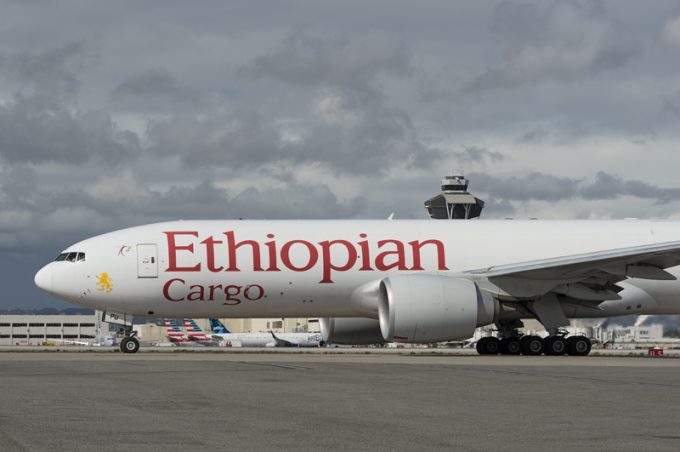Hong Kong drops out of world's top 10 busiest container ports
Hong Kong fell out of the world’s top 10 container ports last year, for the ...

The liability for a fire that occurred on an Ethiopian Airlines aircraft in July 2020, said to be caused by chlorine dioxide tablets, will be judged by the Hong Kong high court.
The 777-200 freighter was preparing for departure from Shanghai to Addis Ababa when the fire broke out. No injuries were reported, but the aircraft, worth at least $80m, sustained substantial damage, along with its cargo, resulting in major losses for the carrier.
China’s Civil Aviation Authority opened an investigation, but any conclusion was never published and is not available from ICAO’s report database.
According to a media report, the probe decided the most probable cause was chlorine dioxide disinfection tablets that “spontaneously ignited in the high temperatures and humid environment”. Experiments confirmed the tablets were susceptible to ignition at temperatures near-80ºC and damp conditions.
At the time, the outside temperature was around 34ºC, but temperatures of 80ºC were said to have been reached inside pallets in the cargo bay. This caused condensation inside the film coating of the tablets; sufficient conditions for spontaneous combustion.
The tablets were classified as “dangerous goods”, the local Reseach Institute of Chemical Industry saying the material was primarily an oxidizer and secondly, corrosive.
The aircraft, loaded with 69.3 tons of cargo from all over China, also contained four shipments of lithium-ion batteries. However, a detailed inspection found these were internally intact with only ‘exemplified discolouration’ on the outside, caused by heat from an external source.
Hong Kong-incorporated Jietong Overseas Trade was the named shipper and Zhejiang Jietong Freight Forwarding handled the customs declaration and air transport of the shipment. Lishui Youfu Knitting packed the shipment.
Ethiopian Airlines has launched legal proceedings in Hong Kong against Jietong, Zhejiang Jietong and Lishui Youfu for compensation.
In July, mainland-based Lishui Youfu Knitting claimed Hong Kong’s High Court should have no jurisdiction over Ethiopian’s claim against it, because there was no contract with Ethiopian, the incident occurred in Shanghai, the dispute should be tried in Chinese and the law governing the dispute should be mainland Chinese law.
However, the judge ruled Ethiopian Airlines had shown that Hong Kong “was clearly the appropriate forum”.
The case continues.
Comment on this article